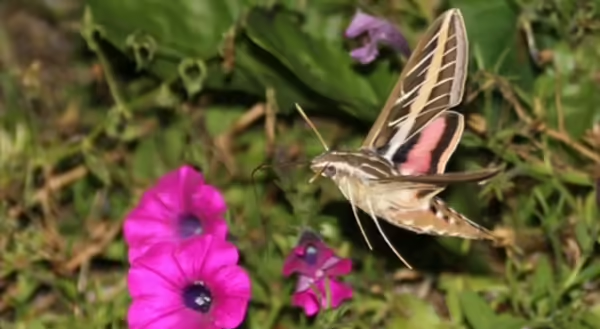
With everything going virtual this year, Illinois’ Master Gardener conference followed suit, hosting only one speaker. So she must have been good.
Recipient of the National Medal of Science in 2014, May Berenbaum is department head of Entomology at the University of Illinois. She is well known for her research on honeybee colony collapse disorder and her outreach programs including the Insect Fear Film Festival, the Pollinatarium on campus, and the Beespotter program.
Berenbaum has been in the news lately talking about what national media coverage has deemed “the insect apocalypse.” Although Berenbaum is not ready to jump on the bandwagon of calling it an apocalypse, she has enormous concerns about the declining numbers. This is mostly due to Berenbaum’s stance that there is still so much the scientific community needs to learn about insects.
She is confident in linking the decline of insects to toxic pesticides but says habitat loss due to climate change is the main culprit. That is to say, she thinks each gardener makes a difference.
And her advice is to just stop doing a few things.
- Stop using bug zappers. Bug zappers are indiscriminate killers destroying thousands of parasitoids, predators, aquatic insects, and nocturnal pollinators like moths, leaving a huge void of food sources for birds. You may zap some of the biting female mosquitoes in really low numbers, but you are likely killing a lot more good insects than biting insects.
- Stop turning on your outdoor lights. Artificial light lures moths and other insect pollinators away from plants, disrupts nocturnal pollination. May suggests using motion detectors on your lights or using yellow-hued LEDs that are less attractive to insects. Incandescent bulbs are among the worst bulbs to use outside.
- Stop using pesticides for weeds and insecticides for Japanese beetles. In fact, May wants you to be more accepting of dandelions, violets, clover, and flowering onion, all of which provide food for pollinators.
- Stop trying to have the perfect lawn. Why put so much effort into non-native grasses when you can have a lawn of clover, or a bee lawn? No pesticides, no fertilizers, less mowing, and mowing higher makes for a much easier regiment, and a more plentiful food source for struggling pollinators. “Lawns are total biological deserts. It’s just grass with pesticides,” she says.
- Leave leaf litter and stems in place. Leaves provide insulation for overwintering insects. Allow leaves to act as a natural mulch in your garden bed. Wait to clean them out in early spring. Do not cut back stems in the fall garden bed as many bees may be overwintering in the centers.
In June of 2020, Berenbaum presented the webinar 'Is There a Pollinator Apocalypse,' which can be viewed online.